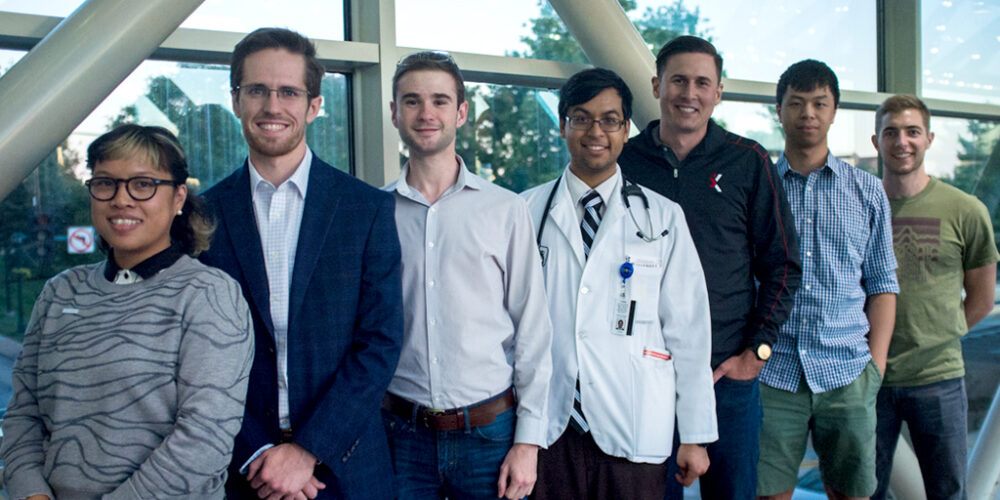The startup Epharmix is on a mission to decrease hospitalization and mortality rates through greater patient-provider engagement, one text message at a time.
This St. Louis-based startup builds automated text and phone call-based communication tools that keep chronically ill or high-risk patients in touch with their care providers between appointments. This allows providers to better monitor their patients and conduct condition-specific interventions.
Together with Avik Som, Joe Macdonald, and Evan Huang, Blake Marggraff founded Epharmix in 2015. Three years later, the startup has expanded their team to 12 full-time employees and more than 100 active research collaborators, most of whom are also based in St. Louis.
Though a Bay Area native, Marggraff doesn’t pine for Silicon Valley. He calls St. Louis “objectively the right place for us to be as a health tech company.”
Beyond access to patient populations and their healthcare providers, the Gateway City provides the right combination of research capacity and desire to innovate. “St. Louis is not saturated when it comes to health tech innovation,” he says. “That means we can bring that really rapid innovation at scale to St. Louis.”
Despite meteoric growth, Epharmix has endured its fair share of hurdles.
According to Marggraff, one of the biggest lessons they had to learn was how to take a product they knew worked objectively well and actually bring it to market: “I would love to think ‘okay we’ll create the tech, we’ll sell it to them, they’ll use it, and everything will be happy!’ And that’s so simple and so naive. We needed to show them the ROI, do a gap analysis for them to show where they need help, enroll their patients onto our software on their behalf, generate reports, even build predictive models. It’s not sufficient just to have a great product.”
Now, with nine peer-reviewed, positive-outcome journal publications affirming the efficacy of Epharmix technology, Marggraff and his colleagues can focus on what lies ahead. They intend to keep growing their sales while making their technology more and more robust; revenue, active patients, and positive clinical evidence are the three metrics essential to Epharmix’ success.
But there is one more thing that drives Marggraff.
“If I am going to spend my time doing something, I want it to quantitatively and positively impact as many people as possible,” he says. “The two proven ways to make people happier are to help them live better lives or help them live longer lives — so education and healthcare. And Epharmix is that.”
This profile originally appeared in the CIC 2018 Impact Report.




